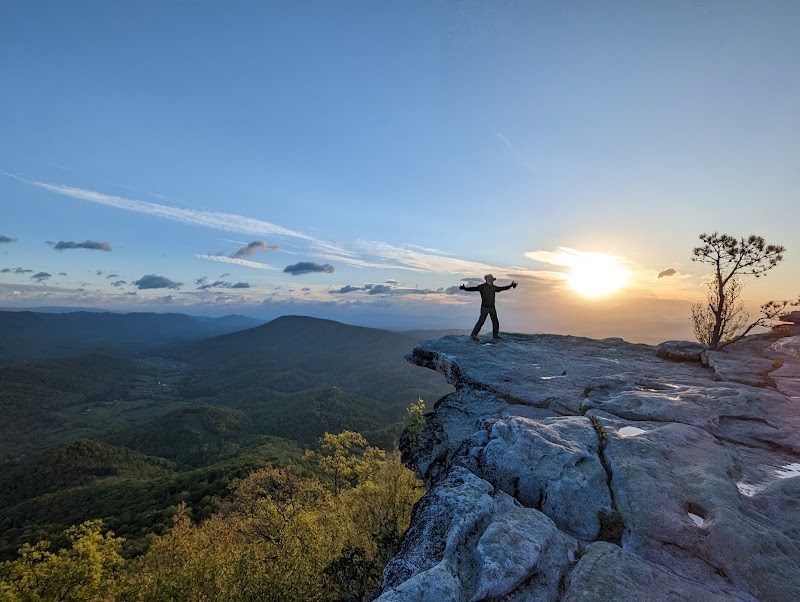
Cumberland Valley Cycling Festival: Fayetteville’s Pedal-Powered Adventure
Experience the Cumberland Valley Cycling Festival, a dynamic event offering routes through Fayetteville's rolling foothills and forested trails. Designed for riders of all skill levels, it combines challenging climbs with picturesque valley views and a supportive local atmosphere.
Choose the Right Route
Select a cycling distance that matches your fitness and experience to enjoy the festival fully without overexertion.
Hydration Matters
Carry enough water or electrolyte solutions to stay hydrated; festival aid stations may be spaced apart on longer routes.
Prepare for Mixed Terrain
Use a bike suited for both paved roads and gravel sections; sturdy tires and responsive brakes improve control on variable surfaces.
Start Early
Begin rides in the morning to avoid peak heat and enjoy cooler, calmer conditions before midday winds pick up.
Cumberland Valley Cycling Festival: Fayetteville’s Pedal-Powered Adventure
The Cumberland Valley Cycling Festival in Fayetteville, Pennsylvania invites cyclists of all levels to engage with the region’s rugged terrain and welcoming community. This annual event blends challenging routes with scenic glimpses of South Mountain’s foothills, offering everything from rolling farmland stretches to forested ascents. It’s an adventure that respects its environment—streams dart beside the routes, daring riders to push their pace while the woods provide a cool canopy to shield from the sun.
The festival routes range between 15 and 50 miles, accommodating casual riders and seasoned cyclists seeking a physical challenge. The terrain varies from smooth paved roads to gravel sections that demand firm control and attentiveness. Expect elevation gains in the range of 800 to 2,000 feet depending on the chosen ride. These climbs, while not mountainous, carry a steady grind, rewarding effort with broad valley views and occasional breezes that feel like the landscape cheering you on.
On the day of the festival, the area buzzes with energy—volunteers direct traffic and guide riders, while local vendors offer quick refuels like electrolyte drinks and hearty snacks to recharge. For planning, bring a reliable bike tuned for mixed terrain, hydration packs, and layered clothing to adjust to changing temperatures throughout the day. Morning starts help beat the afternoon heat, especially from late spring through early fall.
While the physical challenge is real, the event fosters camaraderie, with rest stops providing spots for conversation and strategy. The surrounding environment is fiercely itself: forests hum with cicadas, and the Conodoguinet Creek twists through fields, hinting at deeper wild edges nearby. Whether you ride alone or in a group, the festival becomes a shared dialogue between rider and nature, movement and stillness.
Best approached with preparation and respect, the Cumberland Valley Cycling Festival offers practical adventure in a setting that honors its landscape. Expect a well-organized experience where every mile introduces new scenes and demands steady focus. It’s an ideal way to explore Fayetteville’s unique geography, meet local cycling enthusiasts, and test your stamina on trails that welcome but do not yield easily.
Nearby Trips
All Adventures
Boat Charters
Water Activities
Adventures near Fayetteville, Pennsylvania
Discover the unique and memorable adventures that make Fayetteville, Pennsylvania special.
Frequently Asked Questions
What types of routes are included in the Cumberland Valley Cycling Festival?
The festival offers multiple route options from 15 to 50 miles that traverse paved country roads, gravel paths, and modest elevation gain around 800 to 2000 feet, suitable for riders at varying skill levels.
Are rest stops and facilities available during the rides?
Yes, the festival includes strategically placed rest stops staffed by volunteers providing water, snacks, and mechanical assistance, which helps keep riders fueled and supported.
Is the festival suitable for families or beginner cyclists?
Casual and shorter routes make the festival accessible for beginners and families, though some sections demand attention to bike handling and stamina.
What wildlife might cyclists encounter along the routes?
Riders may spot white-tailed deer, red foxes, and a variety of songbirds. Streams nearby often reveal turtles basking or herons stalking the water’s edge.
Are there accommodations nearby for festival participants?
Camp Hill, about 10 miles from Fayetteville, offers several lodging options including hotels and bed-and-breakfasts, all within easy driving distance for post-ride rest.
How should I prepare my bike for mixed terrain routes?
Ensure tires have adequate tread for grip on loose gravel and that brakes are well-tuned for varied conditions. Carry a repair kit for punctures or chain issues common during mixed surface rides.
Recommended Gear
Hybrid or Gravel Bike
A bike with versatile tires and responsive brakes suited for both paved and unpaved segments ensures comfort and safety.
Hydration Pack
Hands-free water access supports hydration needs during longer and warmer rides.
Layered Clothing
Adjustable layers help manage temperature swings from early morning chill to midday warmth.
Compact Repair Kit
Carry tire levers, patch kits, and a portable pump to handle minor mechanical issues mid-ride.
Local Insights
Hidden Gems
- "Castle Williams Overlook — a less frequented vantage point offering sweeping views of the Conodoguinet Creek Valley."
- "The quiet stretch along Pine Grove Furnace Trail where forest sounds dominate and wildlife frequently crosses."
Wildlife
- "White-tailed deer"
- "Eastern box turtles"
- "Great horned owls"
- "Pileated woodpeckers"
History
"Fayetteville’s proximity to South Mountain ties it to colonial-era trade routes and iron furnace heritage, with the Cumberland Valley historically serving as a critical agricultural corridor."
